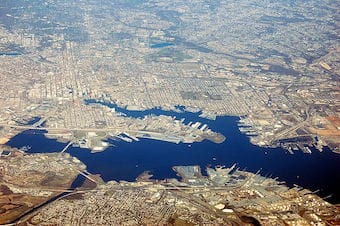1015
King Louis XIV of France raised rebellion in Ireland to put his own man on the English throne.
Throughout the 1680s, King Louis XIV of France nibbled away at countries along the French border from Holland to the Alps, while his ally Turkey harassed them from the other side. Only William, Stadtholder of the Dutch Republic, offered any real resistance, but his navy was too small do anything about it until 1688, when an extraordinary stroke of luck came his way.
Picture: © Kenneth Allen, Geograph. Licence: CC-BY-SA 2.0.. Source.
Posted December 13 2017
1016
Richard Hannay sees for himself how political activists trick decent people into supporting their quest for power.
Early in the Great War, Richard Hannay is in Constantinople, in pursuit of a German secret agent named Hilda von Einem. Hilda has duped a dreamy Muslim mystic into believing Germany shares his vision for society, and as Sandy Arbuthnot explains, that could be very bad both for the Arab world and for England.
Picture: © Österreichische Nationalbibliothek (Austrian National Library), Wikimedia Commons. Licence: Public domain.. Source.
Posted December 12 2017
1017
The Parliament of Scotland tried to liberate itself from London’s strangling single market.
‘Protectionism’ means stifling competition and imports to safeguard domestic industry and so tax revenue. Most European governments were guilty of it in the seventeenth century (they still are) and the Scots were feeling the pinch of it.
Picture: Via Wikimedia Commons. Licence: Public domain.. Source.
Posted December 6 2017
1018
Anglo-Saxon poet Cynewulf wonders at the mystery of the Bethlehem manger, where all the light of heaven was shining.
Cynewulf (possibly the 8th century bishop Cynewulf of Lindisfarne) reflects on Christmas and the birth of Jesus in Bethlehem, and praises God for sending his Son, God of God and Light of Light, to earth as one of us, to bring his dazzling sunrise into the night of this life.
Picture: © Ian Capper, Geograph. Licence: CC BY-SA 2.0.. Source.
Posted December 4 2017
1019
A crackdown on dissent in England’s established Church drove a band of Nottinghamshire townspeople to seek new shores.
‘Mayflower’ was the ship taken by just over a hundred settlers in 1620, hoping to make a new life in England’s American colony of Virginia. Most were economic migrants, domestic servants or merchants, but those who emerged as leaders were Christians from the little village of Scrooby in Nottinghamshire.
Picture: © Raime, Wikimedia Commons. Licence: CC-BY-A 3.0.. Source.
Posted December 1 2017
1020
The spread of Western civilisation must not be credited to European policy, but to a culture of curiosity, enterprise and defiance.
Adam Smith, writing in 1776, the year that her American colonies declared independence from Great Britain, reminded his readers that the Americans had no obligations towards London. The thirteen colonies had been founded by Englishmen, but not by England. No European colony abroad had come into being through Government policy.
Picture: © Fletcher6, Wikimedia Commons. Licence: CC BY-SA 3.0.. Source.
Posted November 30 2017





